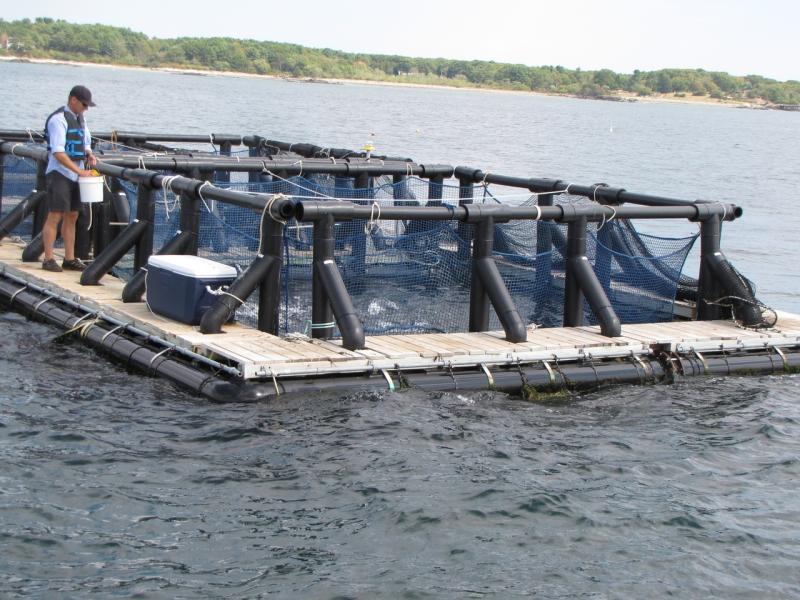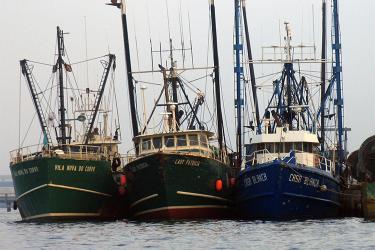As of the worldwide demand for seafood grows and wild stocks already being heavily fished there’s an increased interest in aquaculture. With the dynamic of the industry shifting, NOAA’s Office of Law Enforcement (OLE) has detailed Assistant Special Agent in Charge Jeff Ray to the NOAA Aquaculture Program in the Greater Atlantic Region Fisheries Office (GARFO) to learn and teach, helping to foster an understanding of each entity’s responsibilities.
“It’s nice to get the picture of the ground floor development of aquaculture along the east coast,” said Ray. “I wanted to be a part of this discussion for the evolving industry. It will behoove us at OLE to know the background and understand the story, while providing comment on the effectiveness of regulations and policy development.”
While much of the coast line has examined the possibility of aquaculture, GARFO is more rapidly moving forward with implementing plans for offshore farming. Ray explained that one of the reasons for the interest in aquaculture is that the Northeast region heavily relies on a stable fishing industry.
“NOAA Fisheries is most interested in what can be done to get local fishers back in an economically feasible enterprise,” said Ray. “We also want to ensure a level playing field between fishermen in aquaculture and those in wild caught fisheries.”
If aquaculture is successful, and offshore farming grows at the anticipated rate, the climate of the industry could change, too. A few of these potential changes include less offloading facilities and more aquaculture processing stations, as well as the potential for greater risk for marine wildlife.
One of the first concepts in development is long line mussel farming, Ray explained. He added that a focused concern is understanding if the gear could cause potential entanglement issues similar to fishing nets.
The current conversation is addressing such concerns, as well as how to build offshore aquaculture farms without disturbances and impact to the current marine life balance. Members from the U.S. Army Corp of Engineers, stakeholder networks, habitat conservationists, and scientists have been brought in to engage in planning sessions and ensure the entire scope is being considered.
Ray said, “It’s definitely a positive thing, for U.S. fisheries and the fishermen in the Northeast region.”
--
Story by Ally Rogers, communications specialist for NOAA’s Office of Law Enforcement. To contact her, please call 301-427-8255 or email allyson.rogers@noaa.gov.



